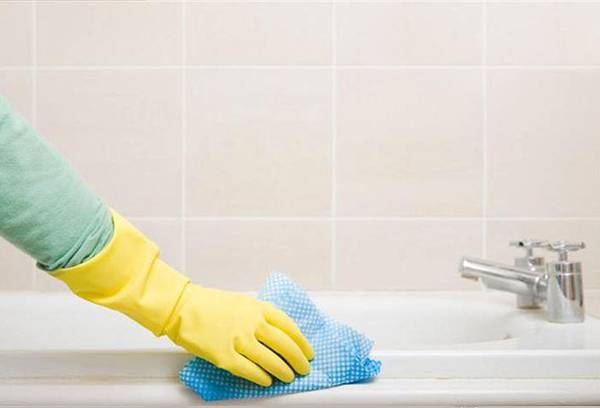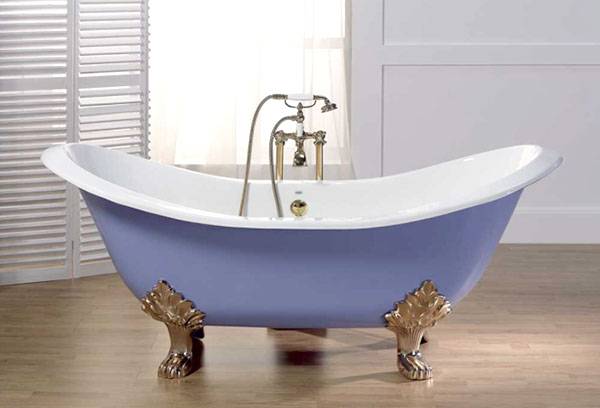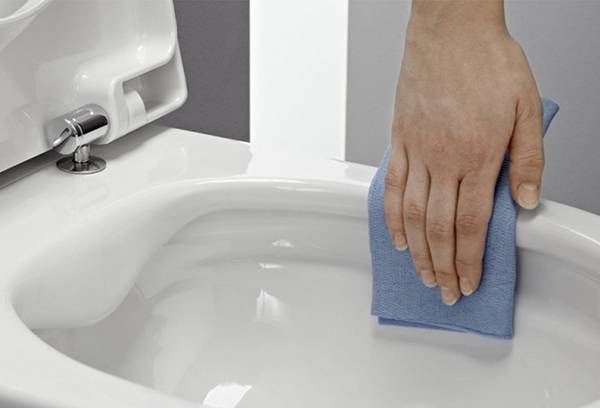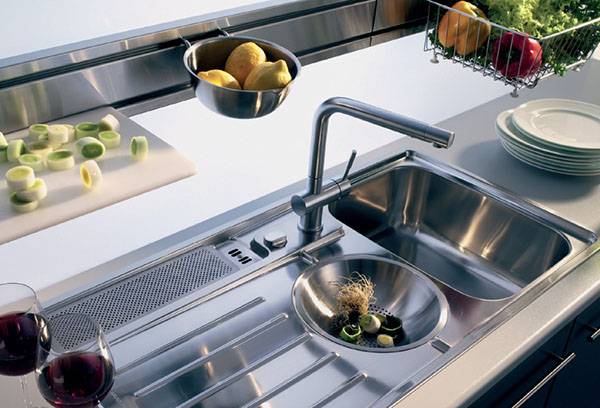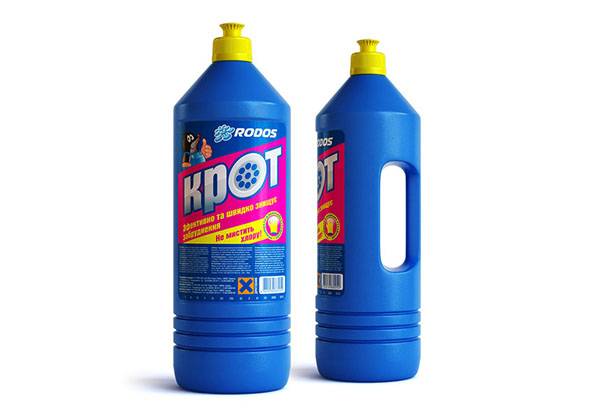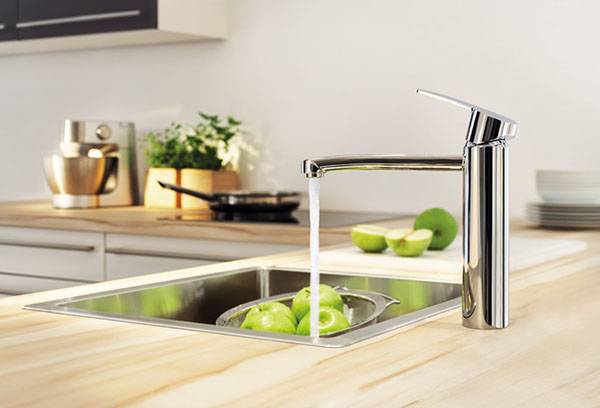What are the plumbing care products and how to choose the best?
Content:
Proper care of plumbing involves the use of detergents and cleaners that will effectively free from contaminants and disinfect the surface, but will not damage the upper protective layer and violate the decorative properties of the devices. Sanitary care products come in the form of powders, gels, foams, liquids, creams and granules. Each of them has a set of qualities necessary when processing a certain type of plumbing: for example, removing limescale, combating fungus, disinfection, the formation of a protective film, etc. Therefore, the search for a household chemical product should begin with determining the properties that it should possess.
Acrylic Bath Cleaners
There are damage-resistant steel or cast-iron bathtubs with enamel coating and acrylic products that require maintenance. In order for such a bath to last for a long time, retaining its original appearance, it is necessary to follow the rules for the care of acrylic surfaces.
- Do not place objects made of metal inside the bathtub.
- Do not use household chemicals intended for cleaning surfaces made of other types of material.
- Exclude products with ammonia, acetone, chlorine and abrasives that can damage the surface. Use soft sponges or wipes for processing.
- When bathing animals, the bottom should be covered with a special mat prepared for these needs.
- After applying the chemical, wash the surface of the bathtub with clean water.
- It is undesirable to pour very hot water into the bath.
- After taking a bath, wash the surface with detergent, rinse and wipe dry with a soft cloth.
- Tools for acrylic bath should have a uniform consistency without lumps and abrasives. Before using a new drug (even if it is intended for acrylic), you need to test it on a small surface area.
The most effective, according to consumers, are the following tools:
- Acrylan
- Cif;
- Team Profi;
- "Mr. Chister";
- Bass;
- Acryl Polish;
- Triton;
- Ravak Clener.
Acrylan allows you to quickly get rid of mold, limescale, soap residue and traces of rust. The product is soft and does not destroy the surface of the acrylic bath. Ravak Clener is economically consumed and easily copes with lime deposits, in addition, it renews the protective layer.
Tip
The Ravak line cleans, disinfects and repairs the coating. If you need acrylic bath gel, you should pay attention to the inexpensive and effective Ravak.
Team Profi - products that do not contain abrasives. The composition gives shine and forms a strong protective film. And Acryl Polish helps polish and remove minor scratches.
Enamel Bath Care
To care for the surface of an enameled bath, common home remedies are often used. To give shine and purity to the enameled bath, it is treated with a non-abrasive cleaner and washed.
Limescale is removed with turpentine. A small amount of solvent is applied to the contamination, and after its removal is washed off with a solution of washing powder.
Traces of rust can be eliminated with a mixture of ammonia and hydrogen peroxide in a ratio of 2: 1. This composition is moistened with “red” streaks, and then washed with water. A solution of vinegar 1: 1 with water and a pinch of salt will help from old spots.
To whiten an enameled bath, you should purchase the appropriate detergent:
- Lemon Fresh;
- Screen;
- Springclean Spray;
- TD 10.
Important!
All of these tools can be dangerous for enamel that has not passed factory firing or has been restored. In order to preserve the enamel, one should not keep the bathtub for a long time with water; it is imperative to wash and wipe it after each bath.
Care for ceramic sinks and toilets
The composition of most pastes and powders for cleaning sinks made of sanitary ware to one degree or another includes abrasives: pumice, ground quartz, chalk, borax, etc. In addition, they may contain surfactants, sodium phosphates, and chlorine.
Qualitative chemistry for washing the toilet must meet a number of requirements:
- fight limescale;
- clean household pollution;
- eliminate rust stains;
- sanitize the surface.
The basis of chemistry designed for washing toilets may be some of the listed substances.
- Chlorine.
Chlorine as a part of detergents bleaches, cleanses and destroys pathogenic microflora.
- Alkalis and acids.
Alkalis dissolve greasy dirt well. Products containing acid concentrate are effective against limescale, rust, but require special care in use. If it enters the eyes and mucous membranes, sulfuric or hydrochloric acid can cause a chemical burn.
- Surfactant.
The most harmless are cationic and anionic surfactants. Cleaning products should contain no more than 15% non-ionic surfactants.
According to consumers, the most effective toilet cleaners are:
- Comet;
- Cillit Bang;
- Sanfor 10 in 1;
- "Dressing duckling";
- Sanox Ultra;
- Sanita - gel anti-rust;
Dressing duckling, Cillit and Domestos are concentrated gels with acids, and Comet 7 is worth buying if you need to ensure a lasting effect. Cillit Bang, Domestos, Sanita gels can cope with long-standing rust spots, and Sanfor 10 in 1 gel with chlorine can be disinfected and bleached.
Care for metal kitchen sinks
Cleaning a stainless steel sink is easy. After use, it is simply treated with a cleaning or detergent, washed with water and wiped dry with a napkin.
Such surfaces are very susceptible to oxidation and the appearance of dark spots.
Home remedies for darkening are:
- table vinegar;
- baking soda;
- potato starch.
Tip
Any stainless steel product can be bleached with starch or broth in which potatoes were cooked. This hot liquid is added to the darkened sink; you can also grate stains with potato starch.
Pipe cleaning
Chemistry to eliminate blockages in pipes is safe for products from any material (including plastic). Tools for cleaning pipes differ slightly in the nature of the action.
- Tiret Turbo Gel eliminates blockage in just 5 minutes.
- Clorox is even faster; consumers estimate it cleans the pipe in 30 seconds.
- Luxus is indispensable for showers and bathtubs. It dissolves grease, dirt and hair.
- The granular "Mr. Muscle" is able to eliminate blockage for a single use.
Mixer Cleaning
Many plumbing products are made of metals and alloys, and may also have gold or chrome plating. To clean such parts, do not use pastes with large particles of abrasive.
Aluminum products are wiped with a mixture of 10% ammonia and water with the addition of 30 g of borax, then washed with water. Copper, bronze, brass or silver parts are rubbed with various pastes using a piece of woolen cloth. Chrome or nickel-plated surfaces are cleaned with chalk powder.
Effective means for cleaning metal plumbing recognized:
- Pulirapid;
- Groh clean;
- Ravak;
- Cillit Bang;
- "The vault effect."
The main condition for the efficient maintenance of plumbing is the regularity and the right choice of household chemicals. At the same time, plumbing care products should correspond to the type of surface so as not to damage the decorative protective layer. If you follow simple recommendations, you can extend the life of the product by several years or more.
